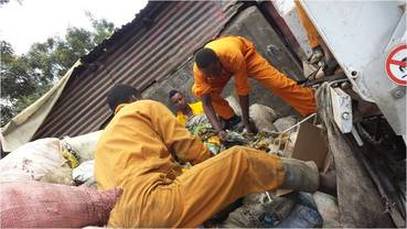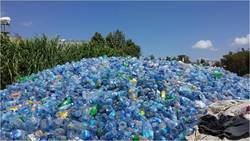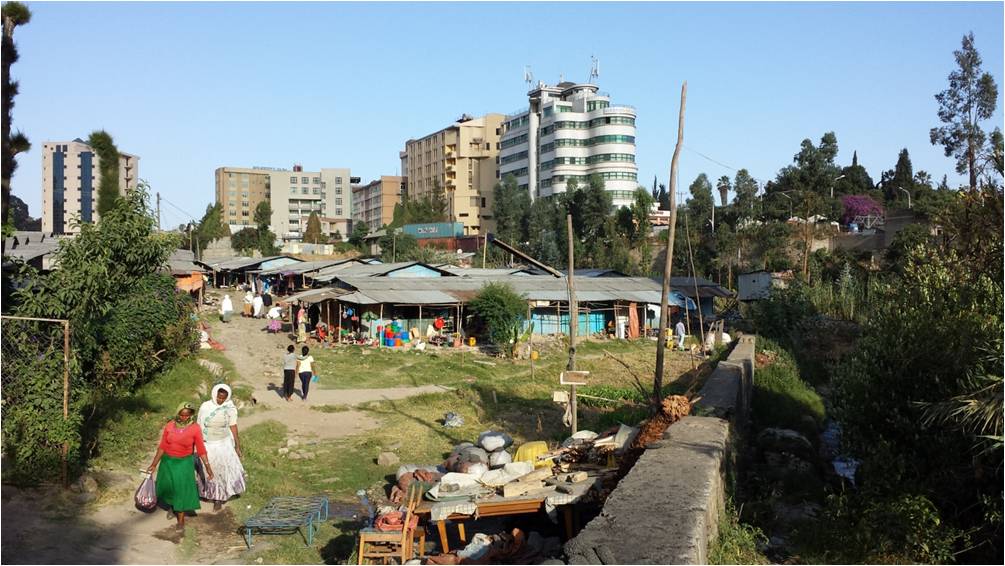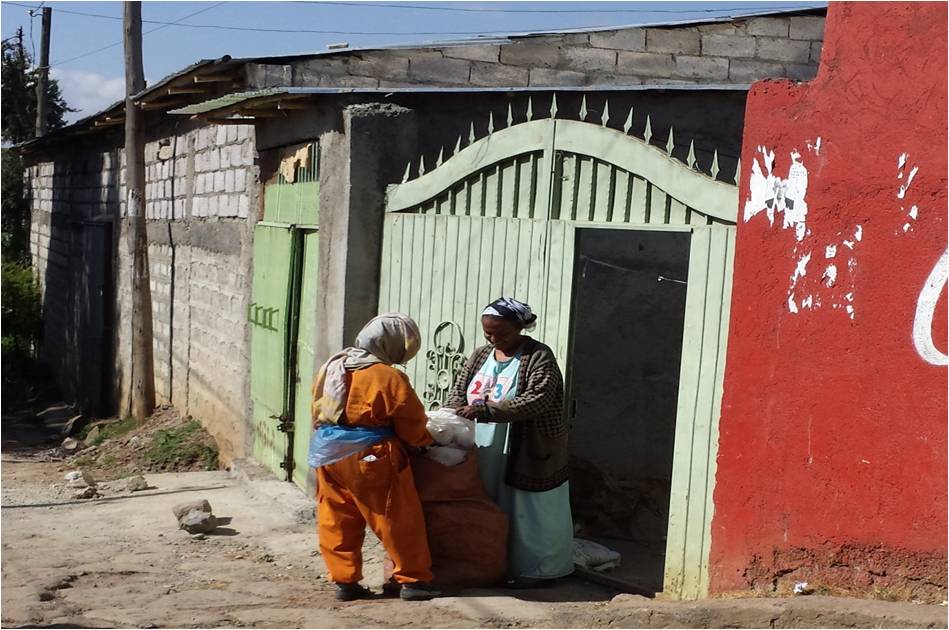 by Chiara Brunisso, Ilaria Meggetto- photos by Agata Fortunato In November 2015, Hydroaid – Association devoted to training on water resources and sanitation – led a technical mission in Addis Ababa, Ethiopia, aimed to carry out research activities in 3 slums of the capital: Addis Ketema, Kirkos e Lideta. This work is part of the Project “Sanitation Daily”, a 5-year initiative coordinated by the NGO Amref Health Africa and co-financed by the European Union. Established as African Medical and Research Foundation in 1957, Amref is the largest African NGO, with Headquarters is in Kenya and 12 branches in Africa, Europe, Canada and USA. Amref currently operated in 26 Sub-Saharan countries and has 172 projects focused on mothers’ care, children’s rights, prevention of diseases, access to sanitation services, drinking water supply, training of local health operators.  “Sanitation Daily” is aimed at facilitating the access to hygiene facilities and improving the management of urban solid waste and storm water in Addis Ababa. The explorative mission of November had the goal of collecting elements for developing proposals for a user friendly, labor saving and cost-effective innovative technology that will improve waste collection system in the 3 target areas. For this reason, Hydroaid appointed Agata Fortunato, Head of the Integrated Waste Cycle Office of the Metropolitan City of Turin, and Chiara Brunisso, graduate in Environmental Economy with experience in field data collection in Ethiopia. The surveys of key locations for collection services and the interviews realized in loco showed a strong contrast between the urban context, characterized by tourism and trade (Addis Ababa is one of the fastest growing cities in Africa, a certain reference for the Sub-Saharan region, and Headquarters of the African Union), and the slums, residential areas characterized by an extremely high demographic density originated by the urbanization flows from the surrounding countryside towards the capital. Micro-enterprises are in charge of urban waste collection services which they carry out, without distinctions, in both commercial and residential areas. The latter represent a hard task because of difficult access and limited vehicles. Teams of 10-12 members collect waste products door-to-door twice a week from areas including up to 1000 households with an average population density of about 200-300 families per square km. In some areas there is a preliminary segregation of material that could represent a value in the market of reused products. In others, waste sacks are transported – on foot, by cart or with the occasional motorized vehicles provided by this Project - to intermediate transfer zones. Here they operate a general segregation of different materials, mainly plastic (because of the consistent use of bottled water), glass, WEEE, metal and cardboard, which are conveyed for direct sale to Merkato, a large outdoor commercial area – considered the biggest in Easter Africa – employing over 13,000 people. Part of these materials are stored and sold to foreign companies, mainly Chinese, for re cycling purposes. Besides acquiring information on the current waste collection system of Addis Ababa, the research focused on the working conditions of employees. Even if they do possess some basic equipment for personal protection, operators only wear light tracksuits – partially because of the high temperatures of the dry season – and are constantly exposed to dust, leaks and metals that could be harmful for health. The most burdensome part of their job, they reported, is the lifting of sacks from households to intermediate transfer zones because of the lack of proper vehicles (such as in the case of hand push carts that require the joint effort of three men).
Therefore there is an urgent need for improving the working conditions of the collectors who currently represent a disadvantaged portion of society not only because of the exposure to sanitary hazards, but because of low salaries and social consideration too.
1 Comment
Quinn Hanley
21/1/2019 19:36:11
I am a University student at Grand Valley State University in the United States and for a class in the Honors College I have chosen to try to develop a solution to the solid waste problem in Addis Ababa. I saw this article and I was wondering if anyone would like to be on my panel of experts. I will send you surveys and questions about the subject and there is very little commitment necessary. if anyone is interested please contact me at [email protected]. Thank you!
Reply
Leave a Reply. |
Archives
April 2024
Categories |
Location
|
Contact Us
|



 RSS Feed
RSS Feed